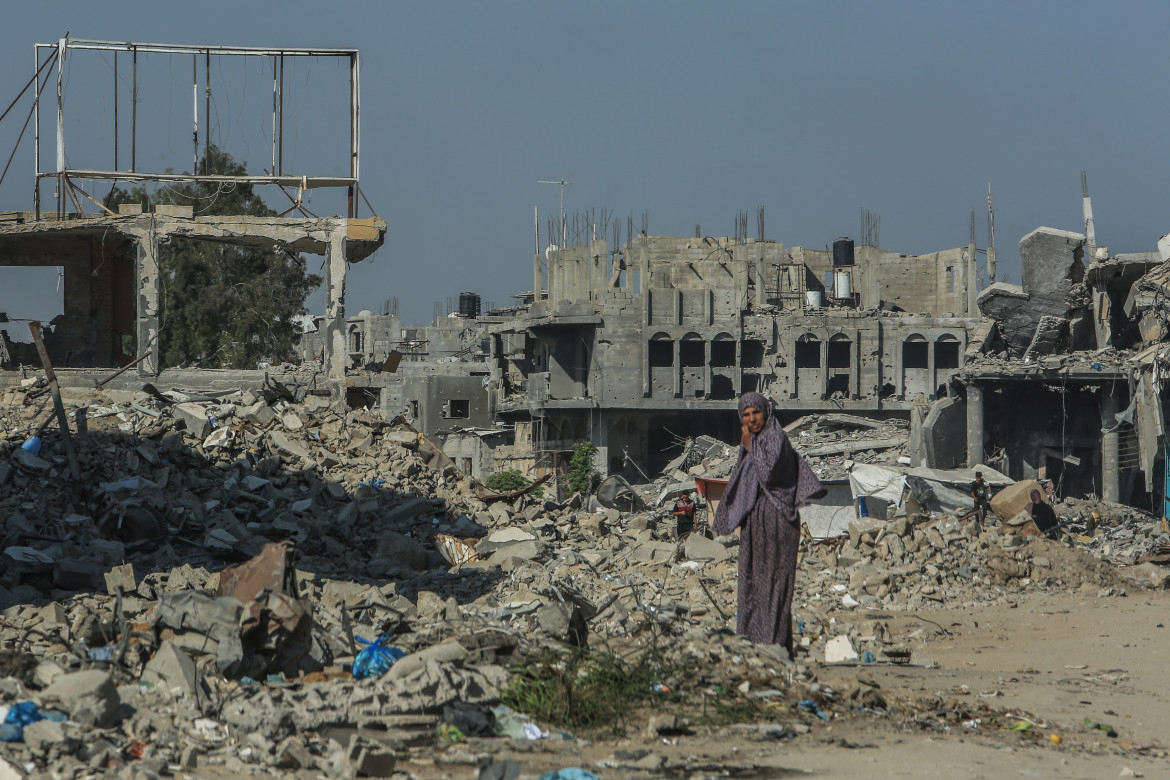Interview
Suaad Genem, former prisoner of Israel: ‘What I experienced in the 1980s continues today’
We spoke with the ex-Palestinian prisoner Suaad Genem, in Italy recently to promote her book, ‘The Tale of Suaad. Palestinian Prisoner.’ Israel’s recent tightening of the detention regime has only added to the country’s torture of prisoners.

The brutality of the war in Gaza is also evident in Israeli prisons, according to the numerous accounts of violence and torture suffered by Palestinian prisoners recounted by Israeli newspapers such as Haaretz and 972mag.
A further tightening of the detention regime – pushed through in October by the Minister of Public Security, Itamar Ben Gvir – only adds to the other forms of torture already in use, both physical and psychological. These practices are also used against women detainees – currently numbering 80 according to the Addameer NGO – with the aim of “humiliating and shaming them as women.”
On the situation of prisoners and, in particular, that of women, il manifesto interviewed Suaad Genem, who is in Italy recently to promote her book, Il racconto di Suaad. Prigioniera palestinese (“The Tale of Suaad. Palestinian Prisoner,” Edizioni Q, 2024), which recounts one of the three episodes in which she was held in an Israeli prison (in 1979, 1983 and 1991).
The author, protagonist and eyewitness to the events tells the story of the environment, the solidarity, the emotional relationships among the inmates and the torture she endured. The book is a prison memoir that describes the female prisoners' struggles to defend their rights, the traumas that imprisonment leaves in its wake, and the memories and emotional bonds that spark up during difficult times. On Tuesday, Genem was in Udine at the Spazio Autogestito on Via Bernardo de Rubeis; on Wednesday she was in Trieste at the Knulp bar-library.
In the first part of the book, you tell the story of your childhood and the constant raids and violence by the Israeli military.
Violence at the hands of the Israeli security forces was, and still is, a constant element in the life of every Palestinian, whether child, teenager or adult. They enter our homes and scornfully destroy anything and everything, even the most personal and private belongings. Sometimes they drive entire families out of their homes simply because they are related to a prisoner, then demolish the buildings. Continuous violence, with raids, gunfire, shouting and threats, is sadly the daily reality that all Palestinians are experiencing in the Occupied Territories.
In your book, you often talk about the importance of culture and learning for Palestinians as a form of resistance. How so?
Culture is our main weapon of resistance. For my part, I earned a law degree in Italy and a doctorate in International Law in England, with the goal of defending our rights. Israel is a colonialist state whose aim is the elimination of the Palestinian people: of our lands, of our villages – now renamed in Hebrew – of our water resources and our cultural identity. This is why it is important for us Palestinians to resist in any way we can, including through learning, in order to preserve our culture.
In the book, you describe your arrest and imprisonment in 1983. Why did you write and publish this account so many years later?
I started writing after a number of years, also as a form of “healing,” to overcome the trauma of the imprisonment, torture and humiliation I had suffered in Israeli prisons. My testimony is meant to be both an individual and collective one. Individual because it tells my story: my arrest at the port of Haifa after returning from Italy, the interrogations, the physical and psychological torture, the hearings and the detention. Collective because my story is that of all Palestinian prisoners and what they are experiencing in Israeli prisons. Unfortunately, what I experienced in the 1980s remains a constant for all prisoners to this day, because the Israeli prison system aims to erase our dignity, physically and psychologically.
In some of the chapters, you talk about the prisoners’ struggle for rights within the prisons. What has been achieved in recent years?
The prisoner movement is one of the main examples of resistance against the Israeli system of repression. The political prisoners represent the front line against oppression. Our struggles in Israeli prisons have led to an improvement in prison conditions. Over the years, we have achieved several breakthroughs: more visits from family members and lawyers, better hygienic conditions in the cells, better food, the ability to study and to stay in touch with the outside world. One of our most powerful means of struggle and victory was the use of the collective hunger strike, when we made it clear that it was better to die with dignity than to be humiliated on a daily basis.
Your testimony is important as a Palestinian, as a former political prisoner and as a woman.
My account should make it clear that despite the torture and humiliation, the resilient spirit of the Palestinian people is stronger than the constant violence and persecution inflicted by Zionism. My time in prison was extremely difficult, with traumas that I am still living with to this day. But then, just as now, what is stronger is the will to resist, to live and to fight for what will surely come one day: the liberation of our people and our land, where everyone will be able to live regardless of race, ethnicity or religion.
Originally published at https://ilmanifesto.it/lex-prigioniera-palestinese-suaad-genem-oggi-come-negli-anni-80-nelle-carceri-stessa-oppressione on 2024-07-17
